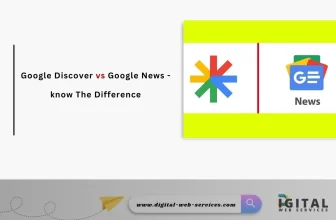
Finding the right accounting software is crucial for small businesses to manage their finances effectively. While Zoho Books is a popular choice, there are several other options available that might suit your needs better. In this blog, we will explore the top 7 alternatives to Zoho Books, starting with ZarMoney, a comprehensive and powerful accounting solution tailored for small businesses.
1. ZarMoney

ZarMoney is a robust accounting software and is an alternative to Zoho Books designed to cater to the needs of small businesses. It offers a wide range of features that streamline financial management and improve operational efficiency. With its user-friendly interface and extensive functionality, ZarMoney stands out as a top contender for small business accounting solutions.
Features:
- Invoicing and Billing
- Expense Tracking
- Inventory Management
- Bank Reconciliation
- Financial Reporting
- Cash Flow Management
- Multi-User Access
- Customizable Dashboard
- Tax Management
- Customer Management
Top 3 Features:
1. Invoicing and Billing:
ZarMoney makes it easy to create, send, and track professional invoices, ensuring timely payments and efficient billing cycles.
2. Inventory Management:
The software provides comprehensive tools for managing inventory, from monitoring stock levels to generating purchase orders, helping businesses maintain optimal stock levels.
3. Financial Reporting:
ZarMoney offers a variety of financial reports that give a clear picture of the business’s financial health, aiding in informed decision-making.
Pros:
- User-friendly interface
- Extensive feature set
- Customizable dashboard
- Multi-user access with role-based permissions
- Efficient customer support
Cons:
- Learning curve for users unfamiliar with accounting software
Pricing:
ZarMoney offers a flexible pricing structure tailored to the needs of different businesses:
- Starter Plan: $15 per user/month
- Standard Plan: $20 per user/month
- Enterprise Plan: Custom pricing based on specific requirements
Final Verdict:
ZarMoney is a comprehensive accounting solution that offers a wide range of features suitable for small businesses. Its user-friendly interface, extensive functionality, and customizable options make it a strong contender as an alternative to Zoho Books. While it may have a learning curve for new users, the benefits it provides in terms of efficiency and financial management make it worth considering for small business owners looking for a reliable accounting software.
2. QuickBooks Online

When it comes to managing the finances of a small business, QuickBooks Online stands out as a reliable and feature-rich accounting software. Known for its user-friendly interface and robust capabilities, QuickBooks Online is a go-to solution for many small business owners looking for an effective alternative to Zoho Books.
Features of QuickBooks Online
- Cloud-Based Accessibility
- Invoicing
- Expense Tracking
- Bank Reconciliation
- Financial Reporting
- Payroll Integration
- Inventory Management
- Multi-Currency Support
- Mobile App
- Third-Party Integrations
Top 3 Features with Explanations
1. Cloud-Based Accessibility
QuickBooks Online allows users to access their financial data from any device with internet access. This flexibility ensures that business owners can manage their accounts whether they’re in the office, at home, or on the go.
2. Invoicing
The invoicing feature lets users create, customize, and send invoices directly to clients. This helps maintain a professional image while also ensuring timely payments.
3. Expense Tracking
QuickBooks Online automatically tracks and categorizes business expenses. This not only saves time but also helps in accurate financial reporting and tax preparation.
Pros
- Easy to navigate, even for those with limited accounting knowledge.
- Offers a wide range of reports that help in financial analysis and decision-making.
- Suitable for both small and growing businesses with different pricing plans.
- Reliable customer support through various channels like chat, phone, and email.
Cons
- Higher pricing compared to some other accounting software options.
- Some advanced features may require a steep learning curve.
- Users may experience occasional downtime or slow performance during peak times.
Pricing
QuickBooks Online offers several pricing plans to cater to different business needs:
- Simple Start: $25 per month – Best for solo entrepreneurs.
- Essentials: $50 per month – Suitable for small businesses with a few employees.
- Plus: $80 per month – Ideal for growing businesses with more advanced needs.
- Advanced: $180 per month – Tailored for larger businesses requiring in-depth financial management.
Final Verdict
QuickBooks Online is a robust and versatile accounting software that serves as an excellent alternative to Zoho Books for small businesses. Its cloud-based platform, extensive feature set, and user-friendly interface make it a top choice for entrepreneurs seeking efficient and reliable financial management tools. While the pricing may be on the higher side, the benefits and scalability it offers can justify the investment, especially for businesses planning to grow. Overall, QuickBooks Online stands out as a comprehensive solution that can help small businesses streamline their financial operations and focus more on their core activities.
3. FreshBooks

FreshBooks is an online accounting software designed for small businesses. It simplifies the process of managing finances with its user-friendly interface and a range of features tailored to the needs of entrepreneurs, freelancers, and small business owners. FreshBooks helps users manage invoices, track expenses, and handle various accounting tasks, ensuring a smooth and efficient workflow.
Features:
- Invoicing: Create and send professional invoices with ease.
- Expense Tracking: Automatically track and categorize expenses.
- Time Tracking: Monitor billable hours and track project time.
- Project Management: Collaborate with team members and manage projects.
- Payment Processing: Accept online payments directly through FreshBooks.
- Financial Reporting: Generate detailed financial reports.
- Recurring Billing: Automate recurring invoices and payments.
- Client Portal: Provide clients with a portal to view and pay invoices.
- Mobile App: Access FreshBooks on the go with a mobile app.
- Estimates: Create and send estimates to potential clients.
Top 3 Features:
1. Invoicing:
FreshBooks offers customizable invoicing options, allowing users to create professional-looking invoices and send them directly to clients. It also provides automated payment reminders, ensuring timely payments.
2. Expense Tracking:
This feature helps users keep track of their expenses effortlessly. FreshBooks automatically categorizes expenses and allows users to snap photos of receipts for easy record-keeping.
3. Time Tracking:
FreshBooks makes it easy to track billable hours. Users can log time spent on projects, and the software automatically generates invoices based on the tracked time.
Pros:
- User-friendly interface
- Comprehensive invoicing features
- Effective expense tracking
- Excellent customer support
- Integration with various apps and services
Cons:
- Limited customization options for reports
- Higher pricing for additional users
- Some features may be too basic for larger businesses
Pricing:
FreshBooks offers several pricing plans:
- Lite: $15 per month, suitable for freelancers and self-employed professionals.
- Plus: $25 per month, designed for small businesses.
- Premium: $50 per month, ideal for growing businesses.
- Select: Custom pricing for businesses with advanced needs.
Final Verdict:
FreshBooks is a robust accounting solution for small businesses, freelancers, and entrepreneurs. Its user-friendly interface and comprehensive features make managing finances easy and efficient. While it may have some limitations for larger businesses, FreshBooks excels in providing essential accounting tools for small business owners. Its invoicing, expense tracking, and time tracking features are particularly noteworthy, making it a strong contender as a Zoho Books alternative. If you’re looking for reliable and easy-to-use accounting software, FreshBooks is definitely worth considering.
4. Wave

Wave is a popular accounting software designed for small businesses and freelancers. It offers a comprehensive suite of financial tools that are easy to use and highly accessible, making it a favorite among users who seek a cost-effective solution without compromising on essential features.
Features
- Invoicing
- Accounting
- Bank Reconciliation
- Receipts
- Expense Tracking
- Payroll
- Multi-Currency Support
- Financial Reports
- Estimates
- Mobile App
Top 3 Features
1. Invoicing:
Wave’s invoicing feature allows users to create and customize invoices, send them directly to clients, and even set up recurring invoices for regular customers. This helps streamline the billing process and ensures timely payments.
2. Expense Tracking:
With Wave’s expense tracking, users can easily monitor their spending by categorizing expenses and attaching receipts. This feature provides a clear view of where the money is going and helps in budgeting.
3. Payroll:
The payroll feature simplifies managing employee salaries, tax calculations, and direct deposits. This saves time and reduces the risk of errors in payroll processing.
Pros
- Free to use for most features.
- User-friendly interface.
- Strong invoicing capabilities.
- Integrates with various payment processors.
- Comprehensive financial reports.
Cons
- Payroll is not available in all regions.
- Customer support can be slow.
- Limited advanced accounting features.
Pricing
Wave is free for its core features, including invoicing, accounting, and receipt scanning. For payroll services, Wave charges $20 monthly base fee plus $6 per active employee or contractor.
Final Verdict
Wave is an excellent choice for small businesses and freelancers who need robust accounting tools without the high costs associated with other platforms. Its user-friendly design, powerful invoicing, and effective expense tracking make it a standout option. However, businesses requiring advanced accounting features or located outside supported payroll regions might need to explore other alternatives.
5. Sage Intacct

When looking for accounting software that goes beyond basic bookkeeping, Sage Intacct stands out as a robust choice. Designed with growing businesses in mind, it offers a comprehensive suite of financial management tools tailored to meet diverse needs. Sage Intacct’s cloud-based platform is ideal for small businesses seeking scalability, efficiency, and detailed financial insights. Here, we’ll explore what makes Sage Intacct a strong alternative to Zoho Books.
Features
- Advanced Financial Reporting
- Real-Time Dashboards
- Project Accounting
- Expense Management
- Multi-Currency Support
- Automated Accounts Payable and Receivable
- Revenue Recognition
- Budgeting and Planning
- Inventory Management
- Cash Flow Management
- Integration with CRM and Other Software
Top 3 Features
1. Advanced Financial Reporting
Sage Intacct provides powerful reporting tools that offer in-depth financial analysis, customizable reports, and real-time data access, helping businesses make informed decisions quickly.
2. Project Accounting
With project accounting, businesses can track project costs, revenue, and profitability with ease, ensuring accurate financial management and strategic planning.
3. Automated Accounts Payable and Receivable
The automation of accounts payable and receivable processes reduces manual tasks, minimizes errors, and accelerates payment cycles, improving overall cash flow management.
Pros
- Sage Intacct grows with your business, making it suitable for small businesses with expansion plans.
- The intuitive design ensures ease of use, even for those not well-versed in accounting.
- Seamlessly integrates with CRM systems and other business software, enhancing overall efficiency.
- Offers a wide range of financial management features, covering all aspects of accounting and financial planning.
Cons
- Higher price point compared to other small business accounting solutions.
- May have a steeper learning curve due to its extensive features.
- Some businesses may require additional customization, which can add to the cost.
Pricing
Sage Intacct offers tiered pricing plans based on the specific needs and size of your business. While it generally starts at a higher price point than Zoho Books, the advanced features and scalability often justify the cost for growing businesses. Exact pricing is typically customized based on the modules and user requirements, so it’s best to contact Sage Intacct directly for a tailored quote.
Final Verdict
Sage Intacct proves to be a formidable alternative to Zoho Books, especially for small businesses with ambitions to scale. Its advanced financial management tools, real-time reporting, and automation capabilities make it a valuable asset for those needing more than basic accounting functions. Although it comes with a higher cost and some complexity, the investment can pay off through improved financial insights and operational efficiency. If your business is looking for a comprehensive, scalable accounting solution, Sage Intacct is definitely worth considering.
6. Kashoo

Kashoo is an accounting software designed to meet the needs of small businesses. Known for its simplicity and effectiveness, Kashoo provides a user-friendly platform that helps business owners manage their finances with ease. Its features are tailored to streamline accounting processes, making it an excellent alternative to Zoho Books. Here’s a detailed look at what Kashoo offers.
Key Features
- Simplified Invoicing
- Expense Tracking
- Bank Reconciliation
- Multi-Currency Support
- Reports and Dashboards
- Tax Management
- Customer Management
- Mobile Accessibility
- Data Security
- Unlimited Users
Top 3 Features
1. Simplified Invoicing:
With Kashoo, you can create and send professional invoices in just a few clicks, saving time and reducing errors.
2. Bank Reconciliation:
Kashoo connects to your bank accounts, automating the reconciliation process and ensuring accuracy in your financial records.
3. Multi-Currency Support:
For businesses dealing with international clients, Kashoo’s multi-currency support is invaluable, allowing you to manage and convert currencies effortlessly.
Pros
- User-friendly interface makes it easy for non-accountants to manage finances.
- Strong customer support with various help resources and responsive service.
- Mobile apps enable financial management from anywhere, enhancing flexibility.
Cons
- Limited advanced features compared to some competitors.
- Customization options for invoices and reports are somewhat basic.
- Integration options with other business tools are not as extensive.
Pricing
Kashoo offers straightforward pricing plans:
- Starter Plan: $0/month – Basic features for freelancers and small businesses.
- Growth Plan: $20/month – Full suite of accounting tools including bank reconciliation and multi-currency support.
- Advanced Plan: Custom pricing – Advanced features and dedicated support for larger businesses.
Final Verdict
Kashoo stands out as a strong alternative to Zoho Books for small businesses seeking a simple, effective accounting solution. Its intuitive interface and essential features make it a great choice for business owners without extensive accounting knowledge. While it may lack some advanced functionalities and customization options, Kashoo’s affordability and ease of use make it an attractive option for small businesses. If you prioritize simplicity and need a reliable tool to manage your finances, Kashoo is definitely worth considering.
7. Odoo Accounting

Odoo Accounting is part of the Odoo suite, an all-in-one business management software that’s popular among small businesses. Known for its flexibility and integration capabilities, Odoo Accounting helps manage financial transactions, invoicing, and reporting efficiently. It’s designed to streamline accounting processes, making it a strong contender for businesses looking for an alternative to Zoho Books.
Features of Odoo Accounting
- Comprehensive Invoicing
- Expense Management
- Bank Synchronization
- Multi-currency Support
- Automated Follow-ups
- Project Management Integration
- Financial Reports
- Asset Management
- Tax Management
- Customizable Dashboards
Top 3 Features of Odoo Accounting
1. Comprehensive Invoicing:
Easily create, send, and track invoices, ensuring you get paid on time. The system automates the process, reducing manual entry errors.
2. Bank Synchronization:
Connect your bank accounts to automatically sync transactions, simplifying reconciliation and saving time on manual data entry.
3. Project Management Integration:
Seamlessly link accounting with project management tools, providing a unified view of project costs and revenues.
Pros of Odoo Accounting
- Highly customizable to fit specific business needs.
- Integrates well with other Odoo modules.
- Supports multiple currencies, making it ideal for international businesses.
- Provides detailed and comprehensive financial reporting.
- Automates many accounting processes, reducing manual workload.
Cons of Odoo Accounting
- Can be complex to set up without technical knowledge.
- Customization might require additional cost.
- Some users may find the interface less intuitive compared to other software.
Pricing
Odoo Accounting offers a modular pricing structure. The accounting module starts at $24 per user per month, with additional costs for extra modules and features. Customization and implementation services may incur additional charges depending on the level of customization required.
Final Verdict
Odoo Accounting is a robust and versatile solution for small businesses looking for an alternative to Zoho Books. Its integration capabilities with other Odoo modules make it a comprehensive business management tool. While the setup can be complex, the customization options and extensive features justify the effort. For businesses that need a scalable and integrated accounting solution, Odoo Accounting is a worthwhile consideration.
Best of the Best: Top 3 Zoho Books Alternatives
1. ZarMoney
ZarMoney tops our list as the best alternative to Zoho Books due to its comprehensive suite of features tailored for small businesses. It offers robust invoicing, expense management, and advanced reporting tools. What sets ZarMoney apart is its user-friendly interface and seamless integration capabilities, which ensure a smooth transition from other accounting software. Its competitive pricing and excellent customer support make it a top choice for businesses seeking a reliable and efficient accounting solution.
2. QuickBooks Online
QuickBooks Online is a well-established name in the accounting software market, known for its reliability and extensive feature set. It provides small businesses with powerful tools for invoicing, expense tracking, payroll, and tax management. The cloud-based platform ensures accessibility from anywhere, and its wide range of integrations with other business tools enhances its functionality. QuickBooks Online’s user-friendly design and strong customer support make it a formidable competitor and a trusted choice for many small businesses.
3. Odoo Accounting
Odoo Accounting stands out for its flexibility and integration capabilities within the Odoo suite. It offers comprehensive invoicing, bank synchronization, and project management integration, making it a versatile tool for small businesses. The modular pricing structure allows businesses to tailor the software to their specific needs without paying for unnecessary features. Although the setup can be complex, the extensive customization options and automation features make Odoo Accounting a powerful alternative for businesses looking to streamline their financial processes.
Conclusion
Choosing the right accounting software is crucial for small businesses to manage their finances effectively. While Zoho Books is a popular choice, there are several robust alternatives like ZarMoney, QuickBooks Online, and Odoo Accounting that offer comprehensive features tailored to the unique needs of small businesses. ZarMoney stands out with its user-friendly interface and extensive features, making it the top choice. QuickBooks Online and Odoo Accounting also provide powerful tools and flexibility that can significantly benefit small business operations. Evaluate your specific requirements and budget to select the best solution that will streamline your accounting processes and support your business growth.
Frequently Asked Questions (FAQs)
1. What makes ZarMoney the best alternative to Zoho Books?
ZarMoney offers a comprehensive suite of features, a user-friendly interface, seamless integration capabilities, competitive pricing, and excellent customer support, making it the best alternative.
2. How does QuickBooks Online compare to Zoho Books?
QuickBooks Online provides powerful tools for invoicing, expense tracking, payroll, and tax management, with a user-friendly design and strong customer support, making it a reliable choice, though not as feature-rich and cost-effective as ZarMoney.
3. Can Odoo Accounting be customized to fit specific business needs?
Yes, Odoo Accounting is highly customizable, allowing businesses to tailor the software to their specific needs and pay only for the features they use. However, it can be more complex to set up compared to ZarMoney.
4. Is it difficult to switch from Zoho Books to another accounting software?
Switching can be straightforward with the right planning. ZarMoney, in particular, offers robust support and tools to help migrate your data smoothly, making the transition hassle-free.
5. What are the pricing options for ZarMoney?
ZarMoney offers competitive pricing with various plans to suit different business needs. Visit their website for detailed pricing information, and you’ll find that ZarMoney provides excellent value for its extensive features.
6. Does QuickBooks Online support multi-currency transactions?
Yes, QuickBooks Online supports multi-currency transactions, making it ideal for businesses with international dealings. However, ZarMoney also offers multi-currency support with a more intuitive interface.
7. How does Odoo Accounting integrate with other Odoo modules?
Odoo Accounting seamlessly integrates with other Odoo modules, providing a unified platform for managing various aspects of your business, such as sales, inventory, and project management. Nonetheless, ZarMoney’s integration capabilities are equally robust and simpler to implement.
8. Are there any additional costs associated with customizing Odoo Accounting?
Yes, customization and implementation services for Odoo Accounting might incur additional charges, depending on the level of customization required. ZarMoney, on the other hand, offers straightforward pricing without hidden fees.
9. Which accounting software is best for businesses that need strong reporting capabilities?
ZarMoney offers exceptionally robust reporting capabilities, allowing businesses to generate detailed financial reports with ease. While QuickBooks Online also provides strong reporting, ZarMoney stands out for its comprehensive and customizable reporting tools.
10. Can these alternatives handle tax calculations and returns?
Yes, ZarMoney, QuickBooks Online, and Odoo Accounting all offer features to automate tax calculations and returns, simplifying tax management for businesses. ZarMoney, in particular, excels with its user-friendly tax management features.
Digital Web Services (DWS) is a leading IT company specializing in Software Development, Web Application Development, Website Designing, and Digital Marketing. Here are providing all kinds of services and solutions for the digital transformation of any business and website.










